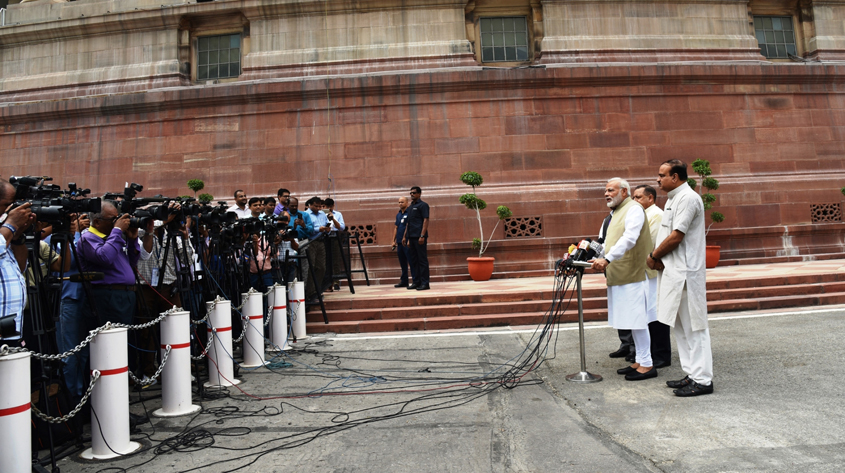The much awaited Union Cabinet reshuffle, perhaps the final before the 2019 Parliamentary elections, is an exercise to accommodate new persons. By virtue of being the most popular leader in the country, Prime Minister Narendra Modi continues to head a government which is driven by him and his selected bureaucrats, with politicians having a marginal role. Therefore, the expectations of the common people are from Modi and as a consequence not from any of his Cabinet colleagues.
Sunday’s revamp would be an occasion for optics and thereby an opportunity for the Prime Minister to reassert his supremacy in the political arena, ahead of his scheduled departure for China. The message that is meant to be sent out is that Modi is in absolute command and so far as the Indian government is concerned, the buck stops with him.
Three and a quarter years since he assumed office, the Prime Minister has been completely hands-on. All major decisions pertaining to key and even not so significant ministries have been taken with his approval. His high profile Cabinet colleagues such as Arun Jaitley in Finance, Sushma Swaraj in External Affairs and Rajnath Singh in Home have been custodians of their respective ministries, but with major decisions or policies being driven by the PMO. Interestingly, Jaitley is perhaps the only one who has facilitated Modi to navigate Lutyens Delhi’s political quagmire.
What is paramount in this dispensation is that prior to coming to power, Modi had led a US Presidential style campaign, thus emerging as the supremo of his party. It would not be far-fetched to say that “Modi is BJP and BJP is Modi”. Modi’s ascendancy has ensured that he is the tallest figure in the Sangh Parivar, thereby overshadowing and eclipsing the others in the arena. It is in this context, that it is of little relevance whether Modi appoints A or B or C or D as minister. He is the axis around whom the government and party functions.
Another reason for the re-shuffle is that Modi understands the importance of giving representation to various communities and regions in the government. His Cabinet was perhaps, the first since Independence that did not have any nominee from Tamil Nadu and the current exercise would correct that anomaly. Further, he would use the moment to induct fresh faces from new allies such as Janata Dal (United) and possibly the AIADMK, to demonstrate the growing nationwide clout of his government and party.
The Prime Minister is a perceptive and astute leader, who is a 24X7 politician and comprehends the wide ranging importance of demoralising the Opposition. He is also conscious of the fact that the re-shuffle would divert the attention of the people from the fresh controversy that has erupted on demonetisation and other policies of the government, thus providing him breathing space to reassess the situation and review his strategy for delivering on his promises.
The criticism that his government has been facing is that it has not done enough to generate new jobs and eradicate corruption, though these serious issues were high on his priority list during the campaign. The promise of good governance and development, which were the primary planks in 2014, have sometimes been overtaken by divisive politics and polarisation. The NDA government has the mandate of the people, though they have started doubting its ability to act. Modi wants to erase and eliminate this impression and so would use the reshuffle to change the political track. He is aware that more than ideology, his government’s performance would be the key to the 2019 Parliamentary poll triumph.

